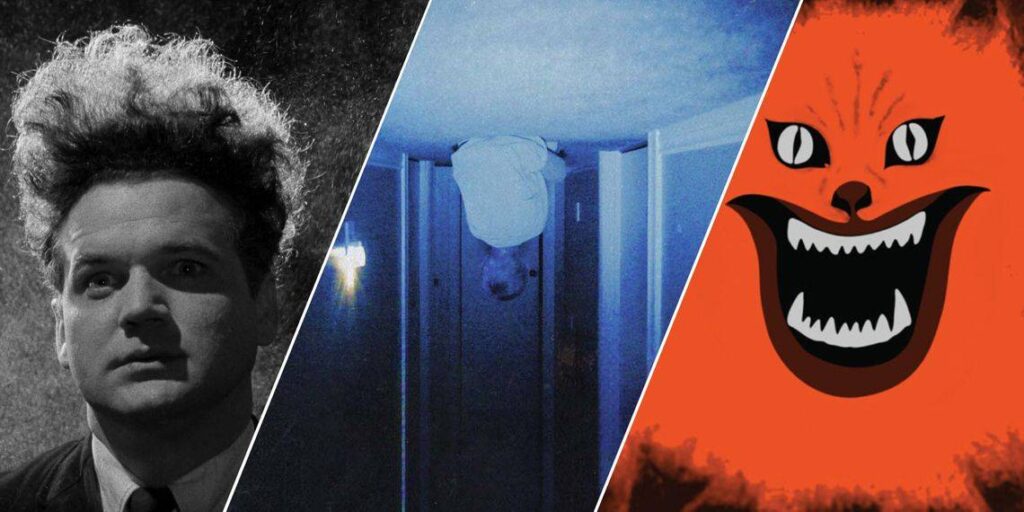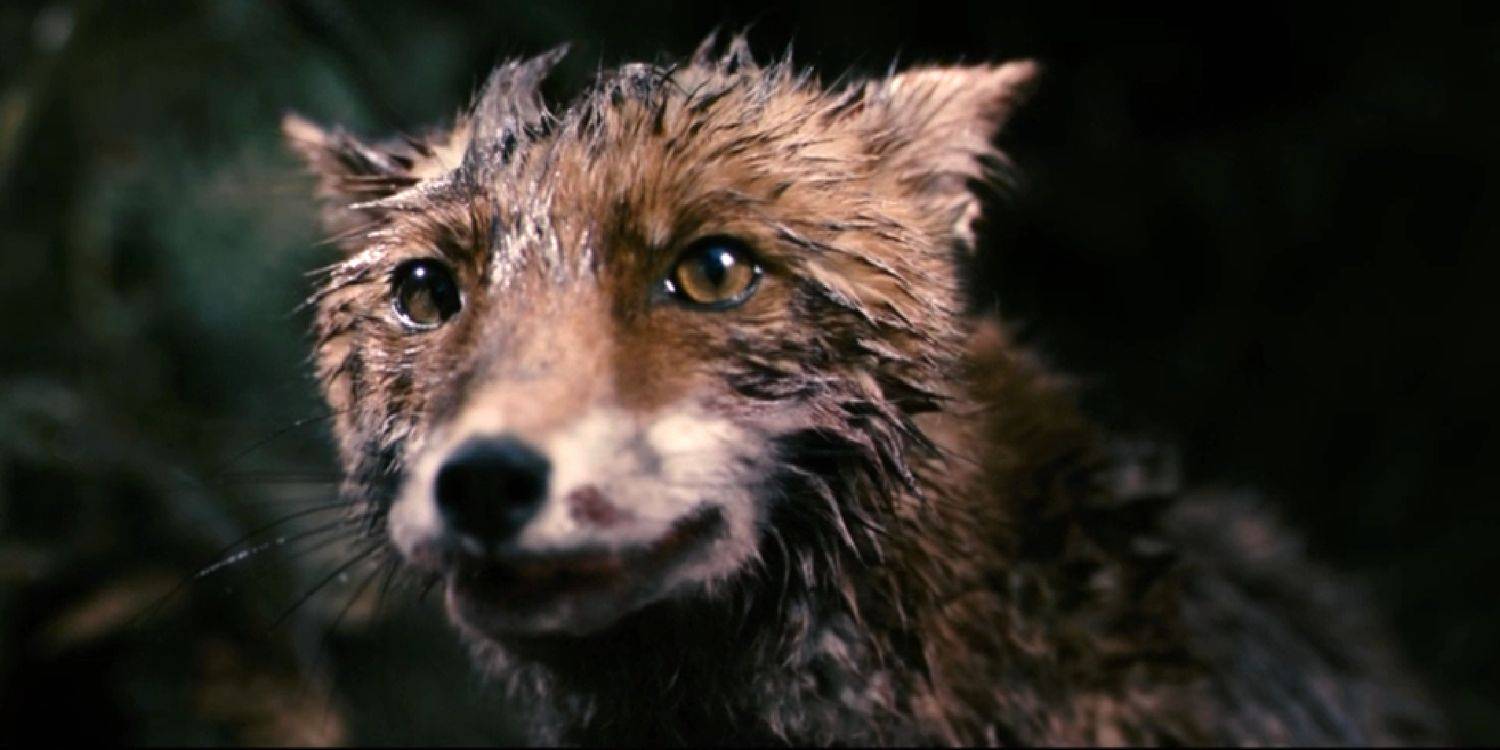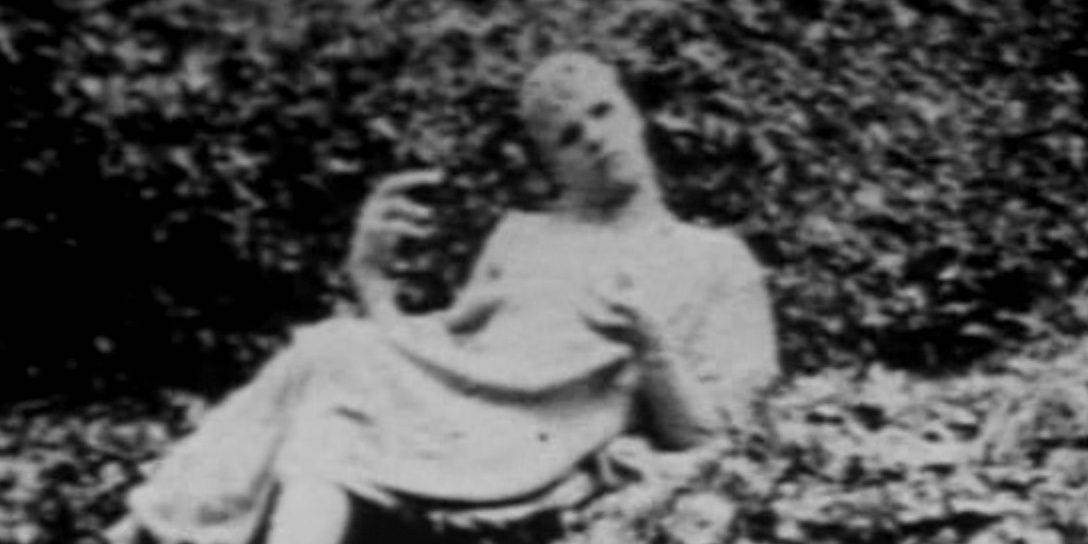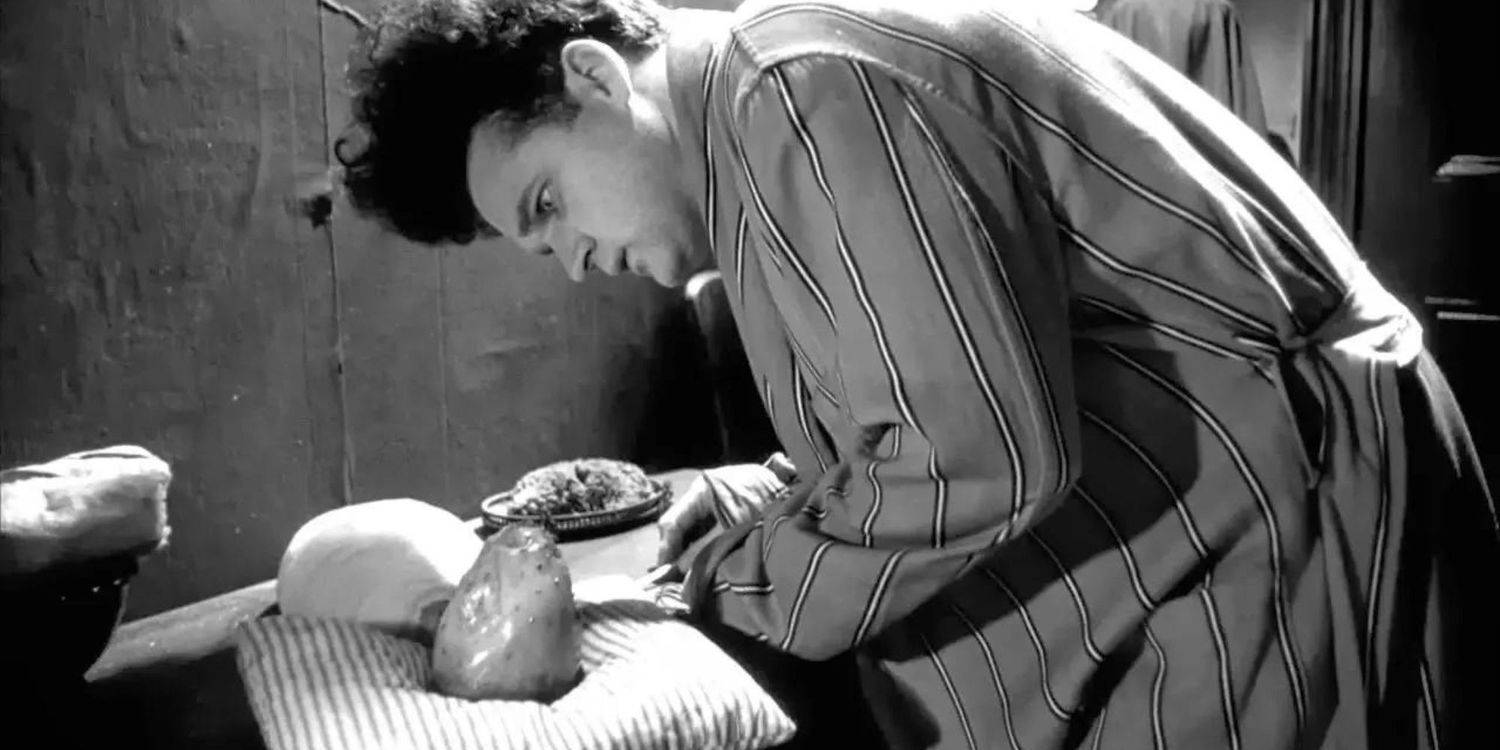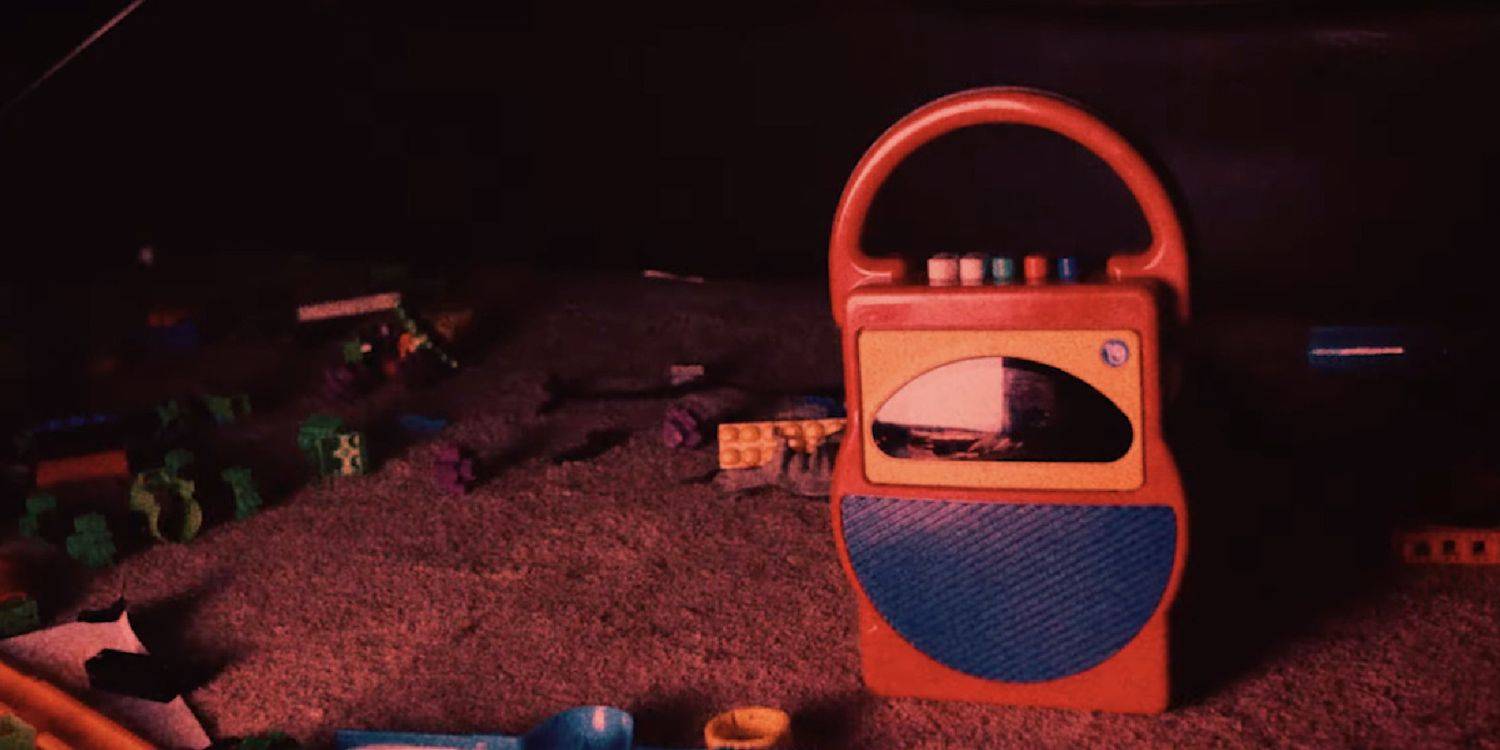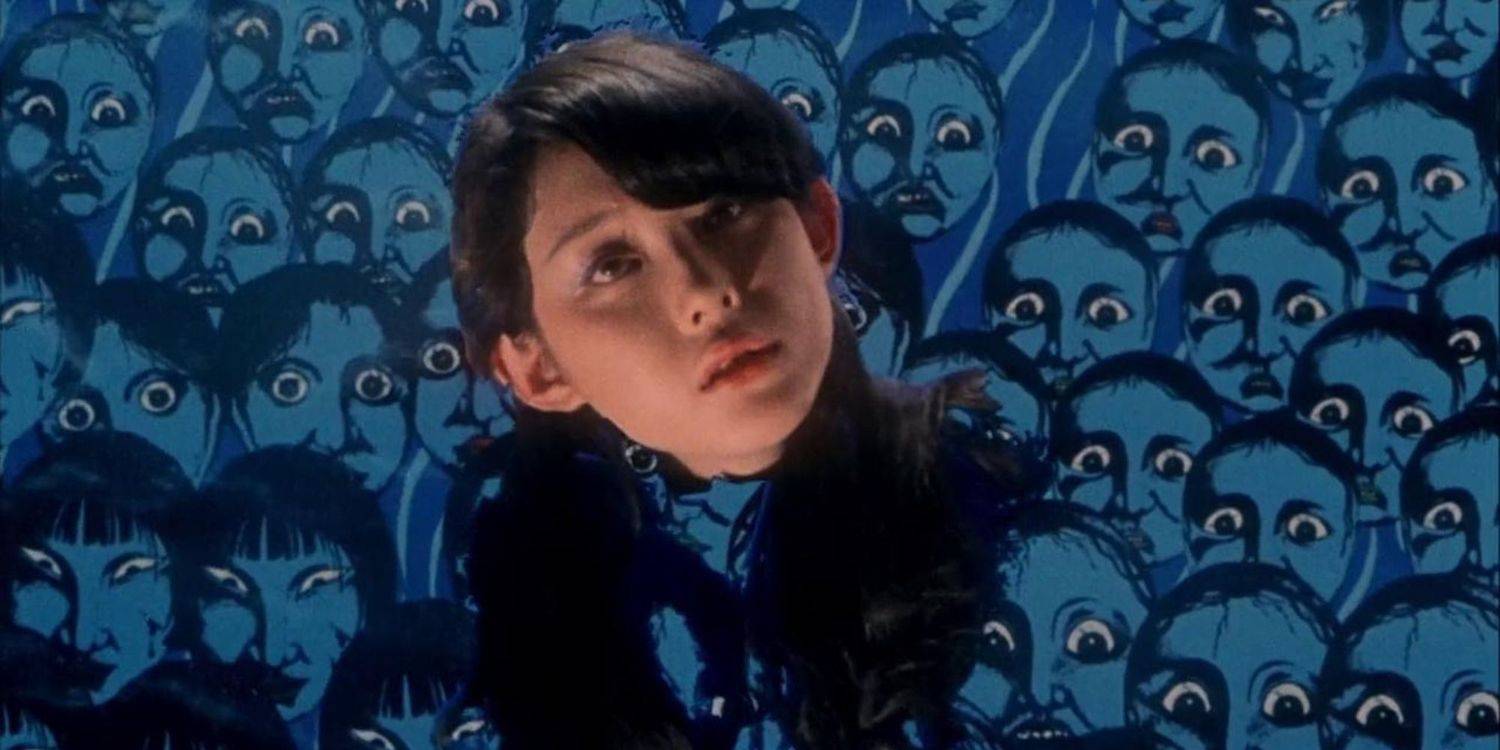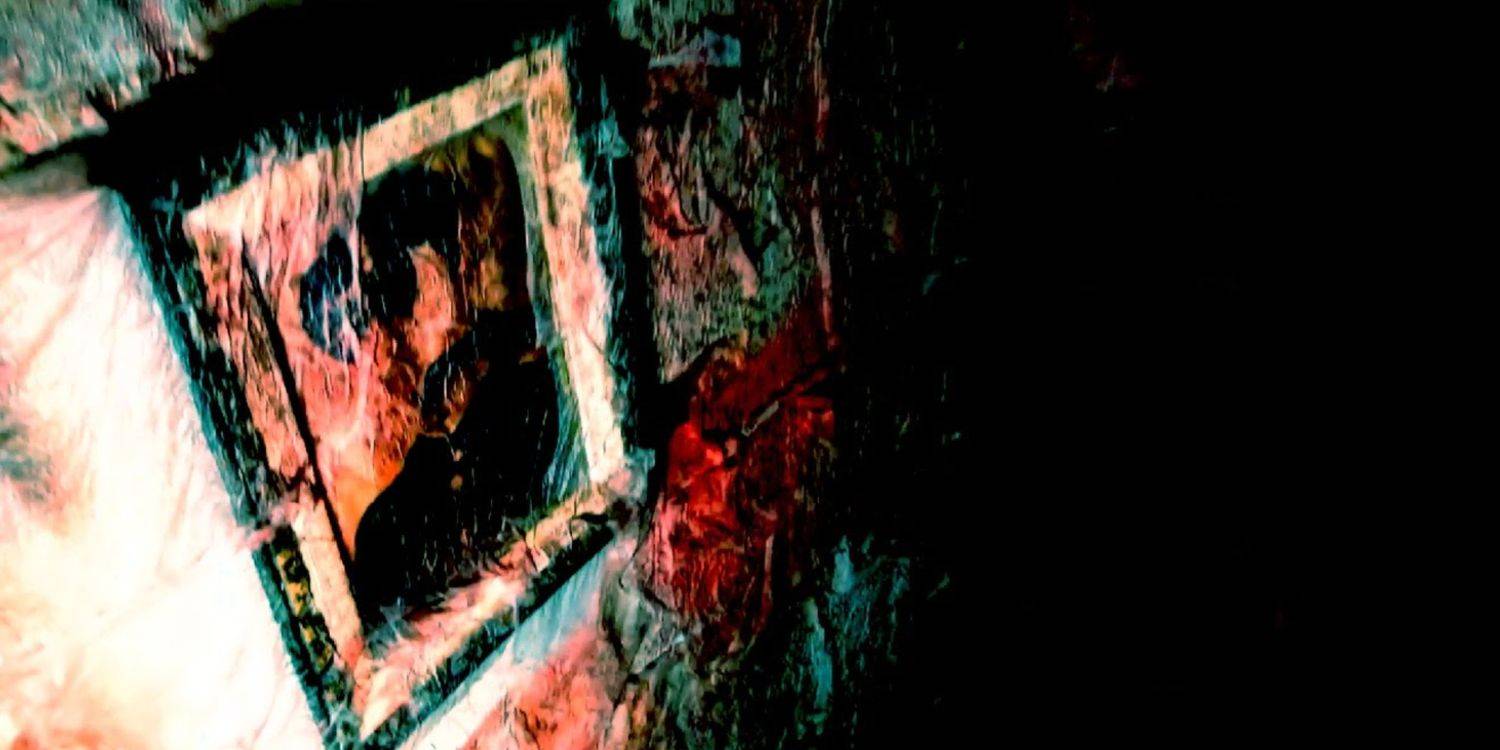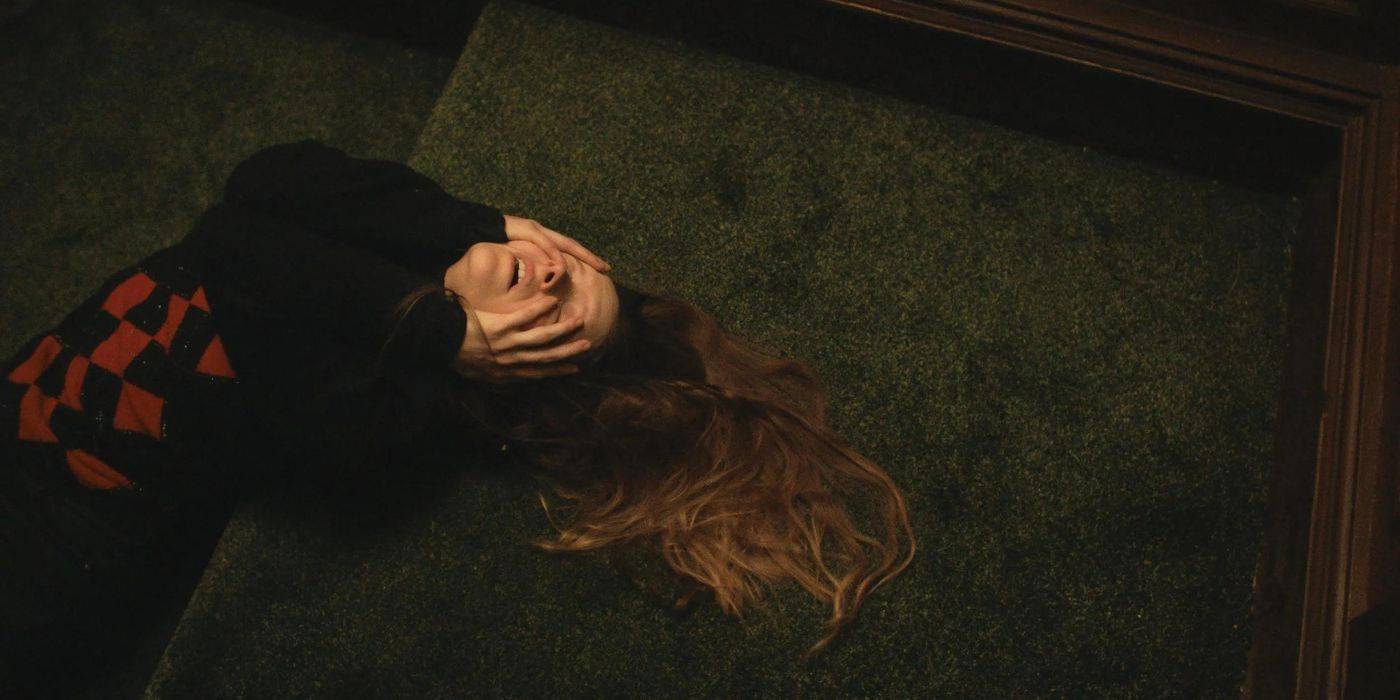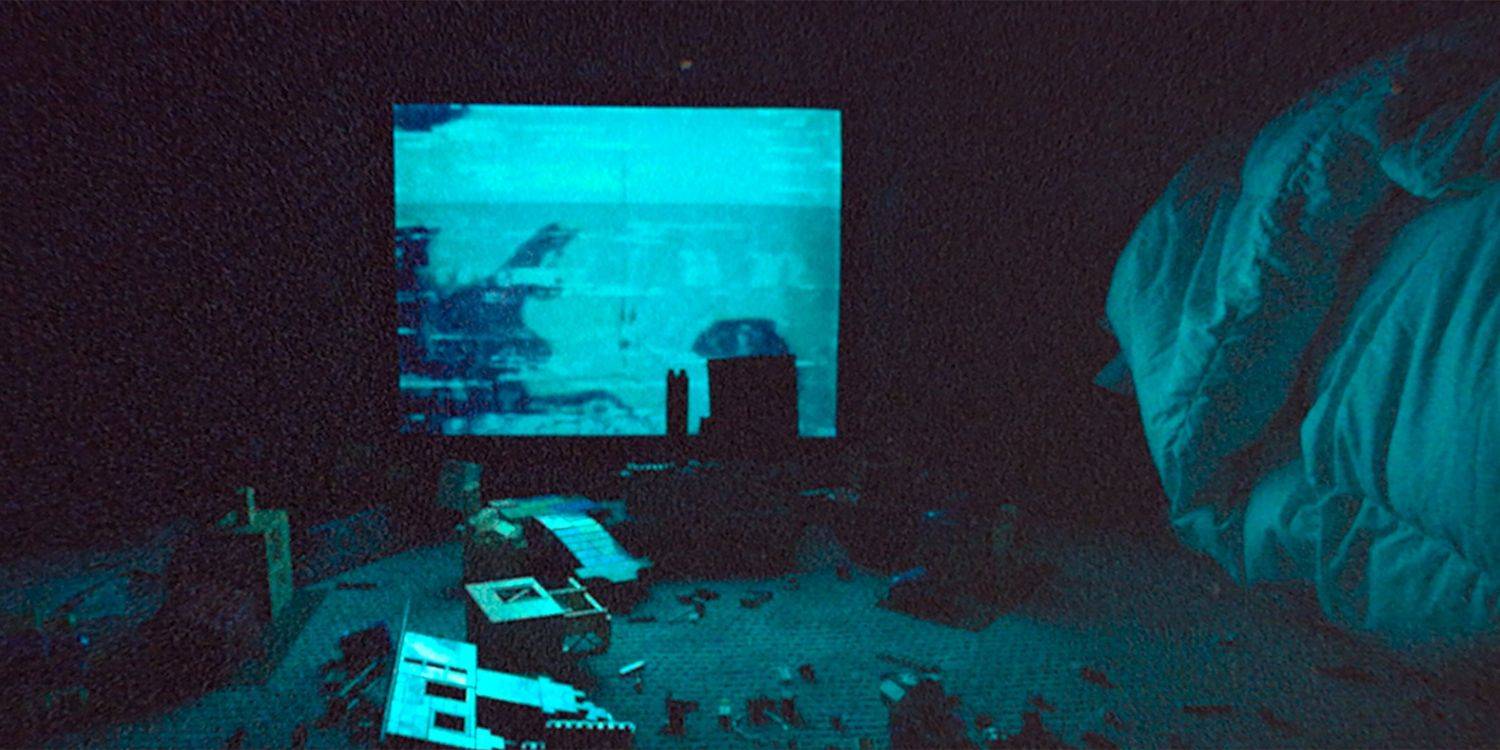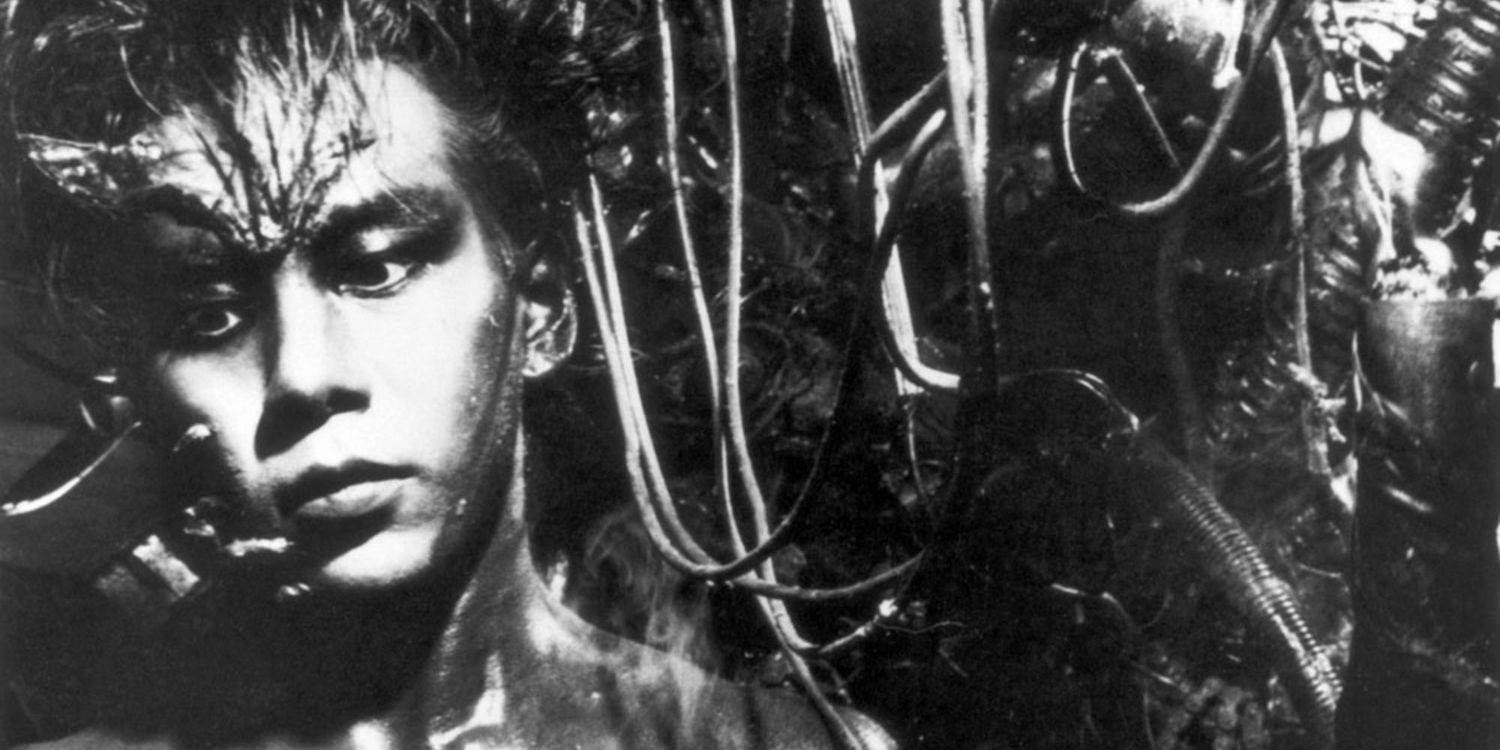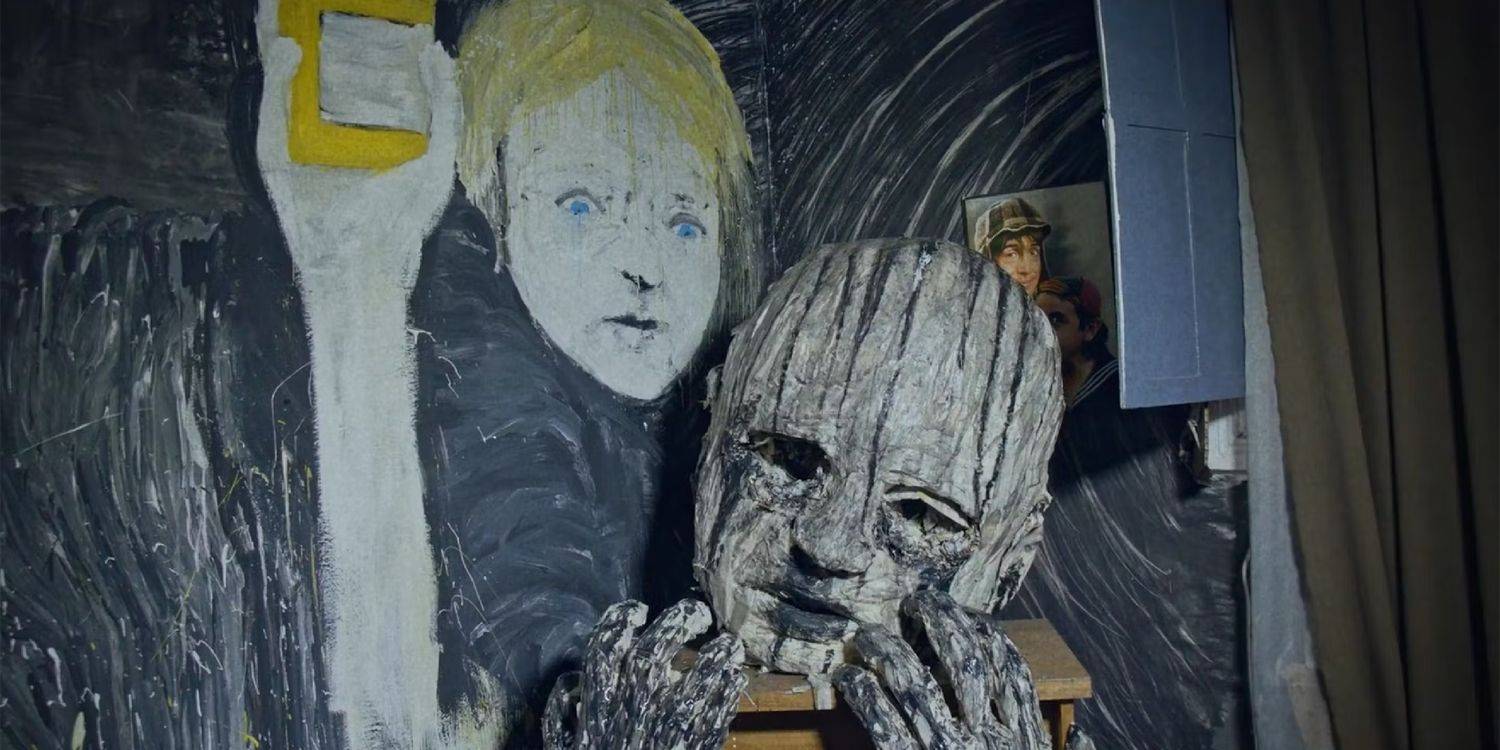One of the first major motion pictures of 2023 was actually a 2022 film. After premiering at a few prestigious film festivals, the new horror film Skinamarink gained popularity throughout the second half of 2022. Its original approach to the horror genre captivated viewers. Thanks to a constrained theatrical run and the announcement that it will start streaming on Shudder in February 2023, the anticipation for the film has subsequently increased and reached new heights in January 2023.
The experimental horror subgenre has gained more recognition as a result of its unexpected success. Although Skinamarink is a superb illustration of how to construct a scary movie in a non-traditional way, it’s not the first horror film to use experimental techniques in its creation. The following movies are excellent examples of this, stressing atmosphere, images, and an overall feeling of unease over a clear plot because the unknown and the incomprehensible can be frightening.
‘Antichrist’ (2009)
Antichrist, undoubtedly Lars Von Trier’s film with the most horror tropes, is no stranger to terrifying anyone who dare to view it. Even something as horrifying as 2018’s The House That Jack Built had some very dark humour, but there isn’t even dark comedy here to somewhat balance out the horrific stuff, with its narrative instead focusing on two grieving parents whose attempts to heal emotionally and rekindle their relationship in a remote cabin go very badly very quickly.
Antichrist mainly sacrifices narrative and replaces it with a steady flow of strange, nightmare episodes, ranging from certain instances of extremely graphic violence to a horrifying (and iconic) talking fox. Though it’s undoubtedly tough to enjoy (and perhaps even follow), once seen, this film is difficult to forget.
‘Begotten’ (1989)
It’s difficult to know where to start when talking about Begotten and what it might or might not be about. A gloomy retelling of the creation tale is generally discernible in this relatively low-budget horror movie, but beyond that, much of it is left up to the viewers’ perceptions.
Begotten’s appeal will depend on whether a viewer finds the pictures and tone to be entrancing or uninteresting. While some viewers might be completely engrossed in the horrifying and frequently unintelligible world it depicts, others might think the film’s 72-minute length is far longer than it actually is. It is experimental horror in the truest meaning of the word, and viewers who have discovered it for more than 30 years now have been sharply divided.
“Eraserhead” 10 (1977)
David Lynch is one of the few directors who excels at creating surreal terror, and Eraserhead may be his most blatant attempt at a cinematic nightmare. It centres on a young man who inhabits an odd universe, attempts to make his partner happy, and is tortured by his inhuman-appearing newborn child.
Despite the fact that it’s simple to interpret this horror movie as being about the challenges of parenthood and young adulthood, it’s really more of a nightmare brought to life on film than a three-act narrative. Little has come close to Eraserhead in the more than 45 years after its publication.
‘Heck’ (2020)
In his 2020 half-hour short film Heck, Skinamarink director Kyle Edward Ball explored the world of analogue horror two years before his 2022 movie. With a similar idea as Skinamarink and a shorter running length and even more experimental atmosphere, it’s simple to watch both and still experience different emotions (and terror) from each.
In comparison to Skinamarink, it is more broadly accessible because it has been posted to Ball’s YouTube channel and is accessible there without charge. Heck serves as a suitable proof-of-concept short film for the forthcoming full film, which builds on some of the themes and imagery from Heck and duplicates a similar style of presentation. People who don’t enjoy or find Skinamarink scary are unlikely to do so.
‘House’ (1977)
For 88 minutes of joyous cinematic anarchy, House takes a straightforward idea and does explosively surprising things with it. It centres on a group of girls who check into a house for what seems to be a laid-back vacation but quickly discover that it’s full of bizarre, extraterrestrial events.
Saying anything more will not only give away the surprises in the movie but also make it harder to do. Real-world logic and consistency are ignored in favour of bizarre, humorous terror and excessive mayhem in the universe of House, which seems to operate according to an alien set of rules. It’s a unique experience and a legendary cult horror film (even though it’s ultimately funnier than it is actually terrifying).
‘My House Walk-Through’ (2016)
The bizarre 12-minute short film My House Walk-Through packs more frights and nightmare visuals than most full-length horror films could ever hope to manage. The movie’s brief running time seems endless as the unidentified narrator walks through and records footage of what appears to be an endless number of halls in his home, each one more terrifying and horrific than the last.
Even while it doesn’t seem horrifying when written out, witnessing it is a visceral and painfully stressful experience. This expertly crafted (and bite-sized) piece of experimental horror immediately evokes a sense of dread that lasts (and intensifies) throughout the short film.
‘Saint Maud’ (2019)
While Saint Maud may have a stronger storyline than the majority of experimental horror films, there are still many aspects of the film that are enigmatic and challenging to understand. A young nurse who recently turned to God starts to care for an older patient in this psychological drama/horror movie, but she discovers that her mind is unravelling during the entire movie for a number of reasons.
Some of these motives are given to the audience very gradually, while other aspects aren’t really explained or revealed at all. This might increase the film’s unease and the impact of its horror, and it effectively functions as a slow-burning, quite traumatic horror movie that’s worth watching through to its audacious finish.
‘Skinamarink’ (2022)
Even after watching Skinamarink and reflecting on it in the days that follow, it’s challenging to determine exactly what it’s about. It takes place inside a mysterious house and seems to be following some kids who are trapped within for an unknown amount of time while they experience a variety of (and strange) sights and sounds. However, characters are rarely seen in the frame, and the sparse language that does occur can sometimes be difficult to understand.
Even though it’s difficult to recall exactly what you’ve watched, everything together results in a film that evokes a powerful emotional response. Although its pacing can be very slow, it does all build to an effectively horrifying final act. It taps into childhood anxieties at a time when the world can be an extra dark, dangerous, and confusing place. Although it may not appeal to everyone, the film is unmistakably ambitious and has a distinct atmosphere.
‘Tetsuo: The Iron Man’ (1989)
Tetsuo: The Iron Man, a cult classic that was made on a very small budget, is arguably the apex of sci-fi/horror and still shocks and impresses spectators today. It follows a man whose life is significantly altered when he discovers that he is the target of an enigmatic curse that gradually converts his body parts into iron. It offers a straightforward but strange body horror theme.
It should go without saying, but it should definitely not be confused with any of the MCU movies that have a character with the same name. The plot of this Iron Man is loud, distracting, and frequently nauseating, yet it’s impossible to help but admire the film’s audacious presentation and how well, given its limited budget, it pulls off its horrific special effects moments.
‘The Wolf House’ (2018)
One of the gloomiest and spookiest fairytale movies ever made would have to be The Wolf House. It centres on a young woman who flees a cult and finds refuge in a remote home in a forest, which turns out to be just as dangerous and terrible as the compound from which she ran.
The exhilarating combination of 2D hand-drawn animation and 3D stop-motion animation, all performed in and around “live-action” sets, is what gives The Wolf House its terrifying quality. It’s not often clear what the story is beyond the setup of the main character escaping, but the presentation of the movie leaves a profound emotional and psychological impression, so a clear narrative through line doesn’t feel vital to the experience.

